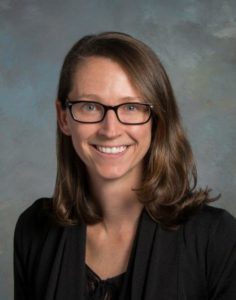
Assistant Professor of Earth and Environmental Sciences Pamela Grothe
Assistant Professor of Earth and Environmental Science Pamela Grothe presented on Sunday as part of former Vice President Al Gore’s 24 Hours of Reality: Countdown to the Future, a digital and global conversation about the climate crisis and its solutions in communities around the world. The presentation focused on the local impacts and solutions of the climate crisis in Virginia, especially as they relate to COVID-19, voting and how people can become agents of change. The presentation was led by Julie Kay, a Climate Reality Project Leader and the co-founder of Fossil Free Fredericksburg. She was joined by Grothe; Bridget McGregor, an organizer with the Virginia League of Conservation Voters; and Allison Grant, member of the UMW President’s Council on Sustainability. The presentation ended with a question and answer panel. Read more.
